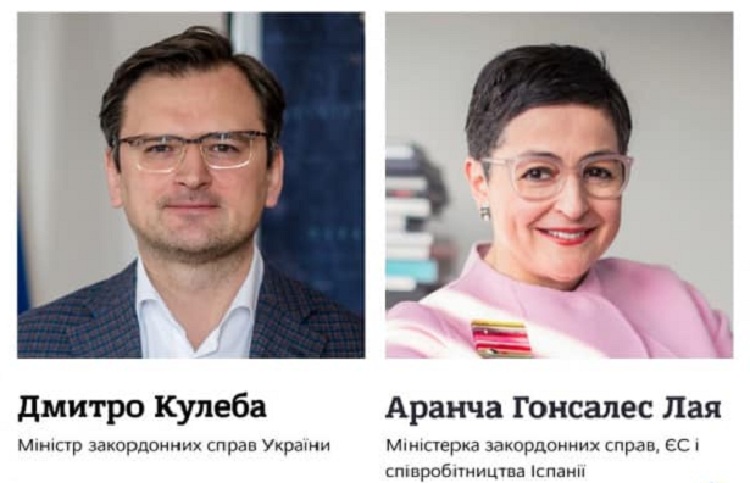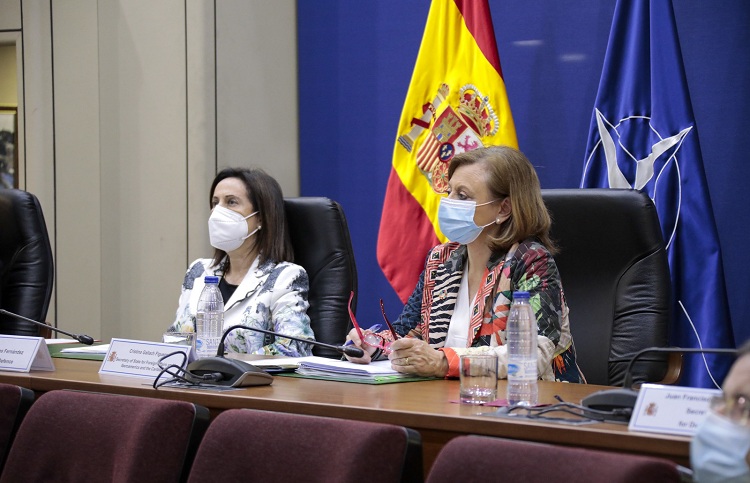Eduardo González
The Minister of Foreign Affairs, Arancha González Laya, held a telephone conversation yesterday with her Ukrainian counterpart, Dmytro Kuleba, to whom she conveyed her concern about the ceasefire violations in Donbass and the buildup of Russian troops along the Ukrainian border and in the Crimean peninsula.
The meeting came a day after the NATO-Ukraine Commission meeting in Brussels, in which Dmytro Kuleba participated and where the allies reiterated their support for Ukraine’s sovereignty and territorial integrity, expressed concern over Russia’s military buildup near the borders and continued ceasefire violations in eastern Ukraine by Moscow-backed militias. Also, NATO Secretary General Jens Stoltenberg assured that the allies do not and will not recognize Russia’s “illegal and illegitimate” annexation of Crimea and that NATO will continue to provide political and practical support to Ukraine.
During yesterday’s conversation, the Foreign Ministry said in a press release, Gonzalez Laya conveyed her “deep concern” over the increase in violations of the July 2020 ceasefire in the rebel territory of Donbass in eastern Ukraine (the scene of armed clashes since 2014 between pro-Russian separatists and the Ukrainian Army), which has resulted in the death of several Ukrainian servicemen in recent weeks.
The minister also expressed concern about “the build-up of Russian troops along the border with Ukraine and on the illegally annexed Crimean peninsula”, in contravention of commitments under the Vienna Document in the framework of the OSCE, and assessed “very positively” the restraint shown on the Ukrainian side.
The two ministers agreed on the importance of achieving de-escalation, returning to the cease-fire and resuming a constructive dialogue in the OSCE Trilateral Contact Group, and Gonzalez Laya assured that he will address these issues again next Monday during the informal meeting of the European Union Foreign Ministers, during which a virtual meeting with Dmytro Kuleba himself will be held.
Moreover, according to the Ukrainian Foreign Ministry, Kuleba informed Gonzalez Laya during the telephone conversation about “the threatening actions of the Russian Federation near the Ukrainian borders and the aggravation of the security situation in the occupied territories in Ukraine”, accused Russia of being the “responsible for the current escalation” and reaffirmed Kiev’s commitment to a political and diplomatic solution to the Russian-Ukrainian armed conflict. For her part, according to the same source, Arancha Gonzalez Laya assured Dmytro Kuleba that Ukraine “can rely on Spain’s support”.
On April 6, the President of Ukraine, Volodimir Zelenski, formally asked Stoltenberg to speed up his country’s accession to NATO, a move that has generated Russia’s indignation and the support of the President of the United States, Joe Biden. In her first words on the matter, Gonzalez Laya merely recalled a day later, during a press conference in Lithuania, that “Ukraine already has a special relationship with NATO without being a member and enjoys a fruitful and healthy special status” within the Alliance. “We don’t want problems with our neighborhood, we want peace and stability in this region, and we will have an opportunity to discuss the specific relationship with Ukraine at the NATO summit next June”, she added.







